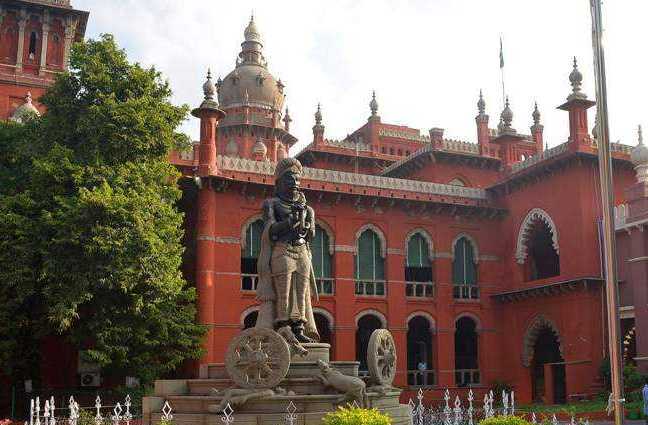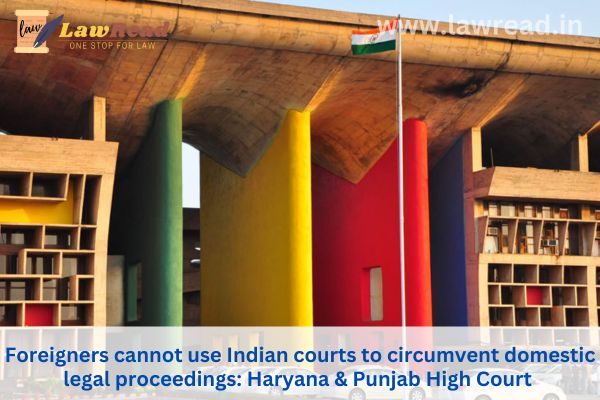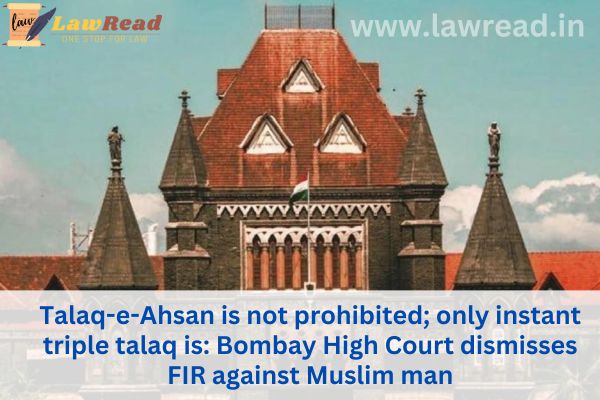News
Talaq-e-Ahsan is not prohibited; only instant triple talaq is: Bombay High Court dismisses FIR against Muslim man
The Court clarified that the 2019 Act prohibiting instant triple talaq is not violated by Talaq-e-Ahsan.
.jpg)
[Tanveer Ahmed and Ors v State of Maharashtra] The Bombay High Court clarified on Wednesday that the Muslim Women (Protection of Rights on Marriage) Act, 2019, which criminalizes instant triple talaq, only applies to the practice of instantaneous and irrevocable divorce known as Talaq-e-bidat and does not apply to the traditional Islamic divorce procedure known as "Talaq-e-Ahsan."
While dismissing a police case against a Muslim man and his parents under the Act that forbids quick Triple Talaq, the Court rendered this decision.
The man used the Talaq-e-Ahsan process to divorce his wife, which entails a 90-day waiting period until the divorce becomes final after Talaq is proclaimed once. According to Islamic law, divorce can still be obtained in this way.
In spite of this, he and his parents were accused of breaking the 2019 Act in a First Information Report (FIR).
The divorce procedure in this instance did not fit within the restricted category, according to a bench consisting of Justices Vibha Kankanwadi and Sanjay Deshmukh.
It would be an abuse of the legal process if the applicants were asked to stand trial, so the case was made out to quash the FIR and the proceedings, the Court stated. "When the facts are admitted and taking into consideration the law, what was prohibited was the Talaq-e-bidat and not Talaq-e-Ahsan."
After being married in 2022, the pair spent a few months living together in several Indian towns. Following marital arguments, the husband issued an official notification and performed a single talaq in front of witnesses in December 2023.
The divorce was enforceable under Muslim personal law since the couple did not move back in together during the 90-day waiting period.
Later, the wife filed a formal complaint (FIR) at the Bhusawal Bazar Peth Police Station in Jalgaon, arguing that the irrevocable divorce was unlawful under the 2019 Act. She further claimed that her in-laws should bear equal blame because they participated in the decision.
In the courtroom, the husband contended that he had adhered to the Talaq-e-Ahsan technique, which is distinct from Talaq-e-Bidat (instant triple talaq). His attorneys cited past court decisions that acknowledged Talaq-e-Ahsan as a legitimate and recognized divorce procedure under Muslim personal law. Additionally, the in-laws denied any involvement in the choice.
In opposition, the wife said that the divorce should be deemed unlawful under the Act since it was still "irrevocable" and that a trial should be held.
The High Court disagreed, though.
It stated that the law was expressly designed to prohibit only divorces that occur immediately and without any possibility of reconciliation.
Furthermore, the Court ruled that laws cannot target it.
"This FIR is actually limited to the husband alone if it is to be interpreted in accordance with Section 4 of the aforementioned Act."
Section 34 of the Indian Penal Code, which addresses joint criminal intention, was similarly disregarded by the court.
"Section 34 of the Indian Penal Code is not relevant to these FIRs. The Bench clarified that there could not be a shared intention behind the Talaq declaration.
Importantly, the Court cited the 2019 law's definition of "talaq," which pertains to immediate and final divorces. The Court clarified that this concept does not apply to other types of talaq, such as Talaq-e-Ahsan.
The Court further pointed out that the husband had submitted a formal notification and used the Talaq-e-Ahsan approach, which was in accordance with the established procedure, even in the FIR.
As a result, it dismissed the criminal case and FIR that were still pending in the Bhusawal court.
Encourage SS On behalf of the husband and his parents, Kazi showed up.
AD Wange, an additional public prosecutor, represented the State.
The wife was represented by advocates Shaikh Mudassir Abdul Hamid and Shaikh Mohammad Naseer A.











